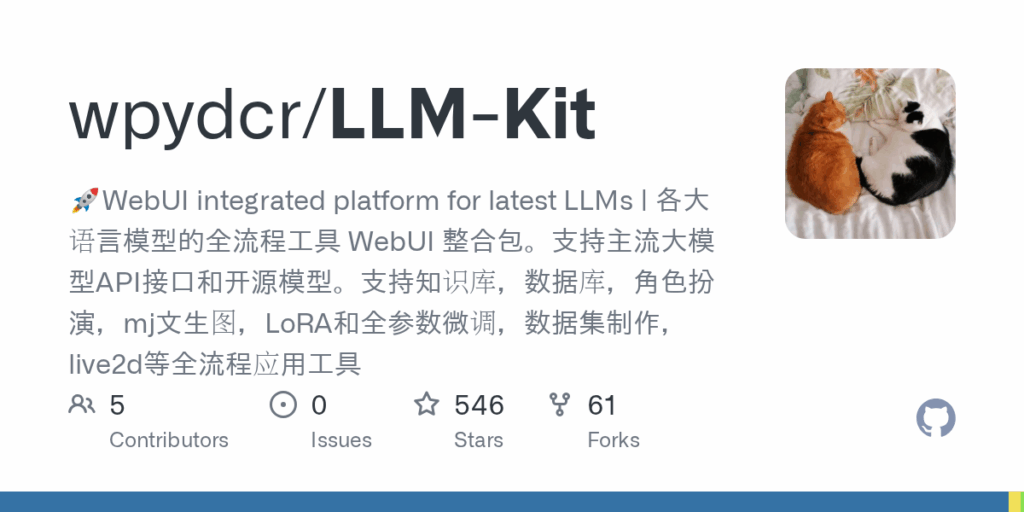LLM Kit
Basic Information
LLM-Kit is a bundled WebUI integration package that brings together a full toolchain for working with language models. The project aims to let users run, customize and deploy LLMs and related applications without writing code. It consolidates model inference and training support, LLM API integrations, embedding pipelines, local knowledge bases, dataset preparation and application demos into a single distribution. The README emphasizes cross-platform use and provides deployment steps, dependency installation and example scripts to start a web demo. The repository targets developers, researchers and hobbyists who want an out-of-the-box environment for experimenting with mainstream open models, commercial LLM APIs, fine-tuning techniques and end-user demos such as roleplay, voice and avatar interaction.








